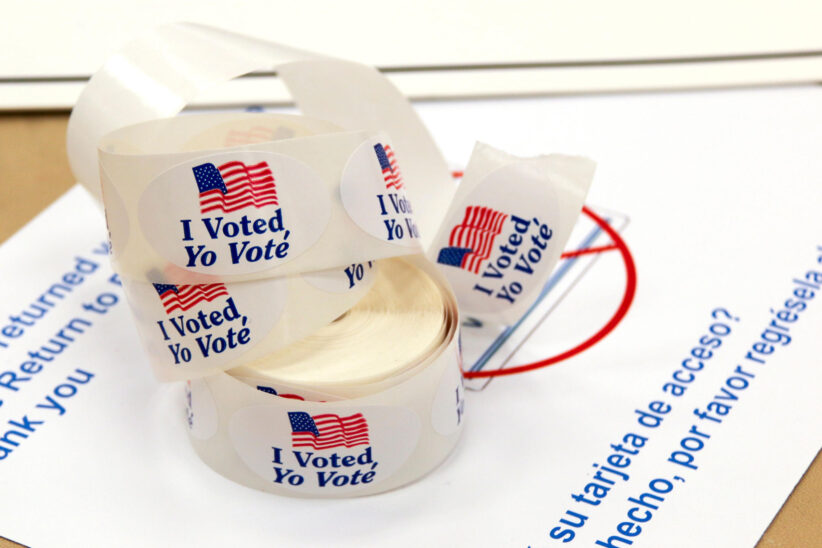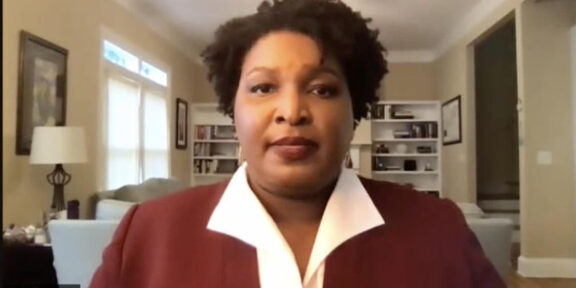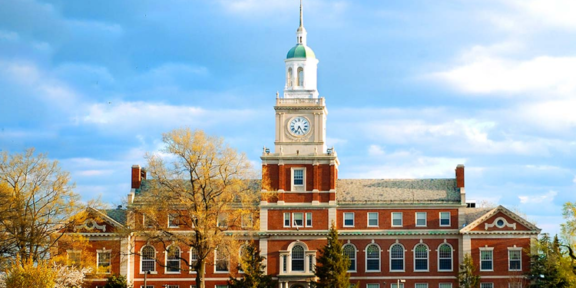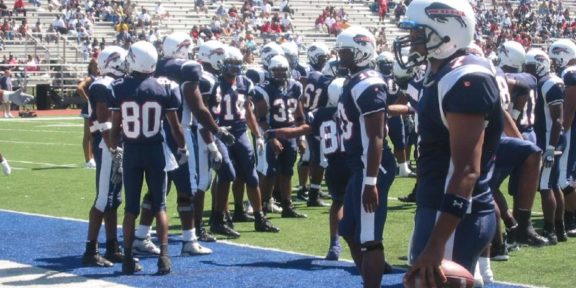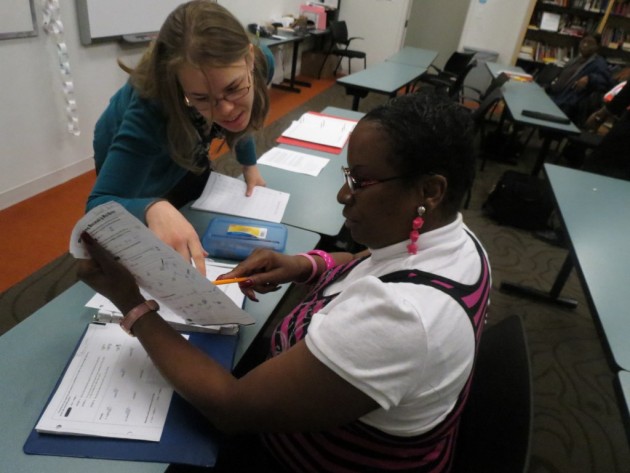By Chrisleen Herard, TruthBeTold.news
As America sits on the brink of another presidential election, some citizens are wondering whether their vote truly matters and if their voices will be heard.
They may be remembering the last time around. On Nov. 8, 2016, television sets nationwide flashed the news of Donald Trump’s victory. Hillary Clinton had 65.8 million popular votes to Trump’s 62.9 million, yet it would be Trump’s 304 electoral votes to Clinton’s 227 that gave him the United States presidency.
The 2016 presidential election stands as a historic moment in the United States, being one of five elections, (1824, 1876, 1888 and 2000) that resulted in a candidate who lost the popular vote but won the presidency. According to Pew Research, 73% of overall voters in 2016 were surprised with this election outcome, and 51%, agreed the country should abolish the Electoral College and replace it with the national vote. That figure has since risen to 55%.
The 2016 election outcome was rare, but not unheard of, so you may be thinking, “If the Electoral College votes are the ones that decide the election, does my vote really matter?”
The Electoral College is one of the government watchdogs built into the Constitution by its Founding Fathers. It was created as a compromise at the 1787 Federal Convention between delegates that desired the president to be chosen by members of Congress and those who wanted the president chosen by the people. The members of the Convention devised the Electoral College in hopes that “corruption would be effectively shut out, and a free and pure election…made perpetual.” As a result, the president is chosen by neither Congress nor the people, but is instead appointed by a group of electors that is selected by the people on Election Day. The electors are chosen by each state’s political parties, and usually are party leaders, activists or elected state and local officials who are viewed as faithful to their party. The number of electors each state has is determined by the Census and represents the total number of representatives and senators each state has in Congress.
Though the Electoral College was created in 1787, few amendments have been made to adjust the voting process to a changing world.
However, electors remain trusted to represent their state and vote in accordance with the popular vote of that state. According to the National Conference of State Legislatures, “There is no federal law or constitutional provision requiring electors to vote for the party that nominated
them,” There are, however, state laws that attempt to bind electors to their commitment of reflecting the state vote.
Steve Coll, former president of New America, a Washington think tank, and dean of the Columbia University Graduate School of Journalism, said, “I do think [the Electoral College] is outdated and ought to be amended. It’s not representative of the founding principle of one person, one vote… It’s compromised by the founding of slavery in the country but also by the exclusion of women and even white men who did not own property from the franchise initially…the Electoral College stands in the way of realization of that principle [one person, one vote] for reasons that cannot be justified in the modern world.”
Electors in some states are required to vote for the candidate who wins their state’s popular vote or to sign a pledge saying they will do so. Penalties include being replaced as an elector, fines and a criminal sanction, depending on the state. There are 33 states that require electors to vote as so, including the District of Columbia, though most do not provide any penalty.
In the 2016 election, a historic number of 10 “faithless” electors (seven who were successful) went against their state and party wishes in their vote. Four came from Washington state, three casting their votes for Secretary of State Colin Powell, despite the state being won by Clinton. In an article in the Guardian, one of the “faithless” electors, Peter Bret Chiafalo, is quoted as saying, “It is assumed that electors must just vote sheep-like for the party candidate who wins their state. But I believe in the rule of law…it is clear that we have the duty to block anyone who is unfit for the presidency.”
Chiafalo hoped other Republican electors would join in his attempt to stop Trump and support Powell as well. Michael Baca was another faithless elector in Colorado, casting his ballot for John Kasich in spite of Clinton’s win in another attempt to stop Trump’s victory. Baca was removed and replaced as elector and Chiafalo, along with two other Washington electors, were fined $1,000. Chiafalo challenged his fine in Washington and Baca sued the state of Colorado in federal court, both arguing that electors have free will to vote as they please.
Though the 10th Circuit Court of Appeals sided with Baca, the Supreme Court in Chiafalo v. Washington issued a statement in June of this year saying, “[E]lectors are not free agents; they are to vote for the candidate whom the State’s voters have chosen.” The court later applied that to Baca’s complaint as well, reversing the appeals court decision.
Coll, the dean at Columbia, said, “Right now the electoral college outweighs the national vote and that’s what people who favor change think is wrong. The national vote should be the basis for electing the president… The cleanest way to go forward would be to have a constitutional amendment or just eliminate the Electoral College.” In order to pass a constitutional amendment, two-thirds of both houses of Congress or two-thirds of state legislatures must propose the amendment to initiate the ratification procedure. Approval by three-fourths of the states is required for an amendment to be ratified. Hundreds of attempts have been made to dismantle the Electoral College, yet all of them have failed. The closest Congress has gotten in recent history was in 1969. In 1968, a Gallup poll
reported that 80% of Americans wanted to elect the president by way of popular vote. Just a year later, 338 members in the House of Representatives voted in favor of an amendment. However, Southern lawmakers filibustered the bill in the Senate to maintain electoral power in their small states.
Another attempt was made in 2005 when Democratic Rep. Gene Green proposed the “Every Vote Counts” amendment. In Green’s proposal, he said, “The stakes of American presidential elections are tremendous for all of us but our Presidential candidates focus their activities on small numbers of ‘swing voters’ in roughly a dozen states…This is an injustice. All Americans are created equal and all Americans vote should count the same.”
His proposal failed, like many others over the years, and the purpose and need for the Electoral College continues to be debated today.
Jason Harrow, executive director of Equal Citizens and the legal counsel in the Michael Baca case, said in an interview, “Everyone’s popular vote matters greatly because that determines who the electors are going to be, and 99.9% of the time, literally, electors vote the way they are expected to vote.
“Are there emergency or extraordinary circumstances where [the electors] might want to vote for someone else? Yeah,” Harrow said. “It’s not that your vote won’t matter but [in some unique situations] we need [the electors] to figure out what to do next.”
The Electoral College was designed to be the extended voice of the people, a bridge made to connect our votes to the White House without corruption. Though the popular vote does not supersede the electoral vote nor directly elect the president, the people have a voice that cannot be ignored by their electors.
Truth be told, your vote does matter.
TruthBeTold.news is a fact-checking news site produced by students in the Howard University Department of Media, Journalism and Film.

